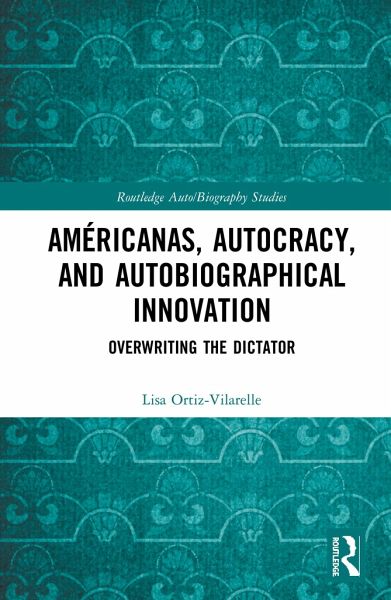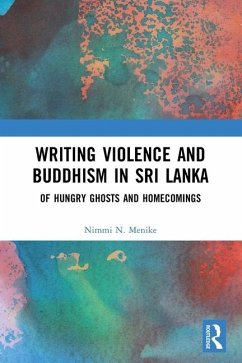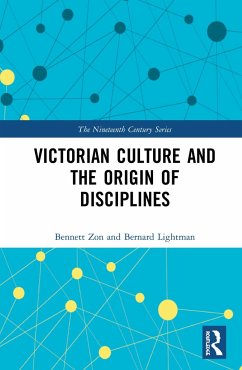
Américanas, Autocracy, and Autobiographical Innovation
Overwriting the Dictator
Versandkostenfrei!
Versandfertig in 1-2 Wochen
169,99 €
inkl. MwSt.
Weitere Ausgaben:

PAYBACK Punkte
85 °P sammeln!
Overwriting the Dictator is literary study of life writing and dictatorship in Americas. Its focus is women who have attempted to rewrite, or overwrite, discourses of womanhood and nationalism in the dictatorships of their nations of origin. The project covers five 20th century autocratic governments: the totalitarianism of Rafael Trujillo's regime in the Dominican Republic, the dynasty of the Somoza family in Nicaragua, the charismatic, yet polemical impact of Juan and Eva Perón on the proletariat of Argentina, the controversial rule of Fidel Castro following Cuba's 1959 revolution, and Augu...
Overwriting the Dictator is literary study of life writing and dictatorship in Americas. Its focus is women who have attempted to rewrite, or overwrite, discourses of womanhood and nationalism in the dictatorships of their nations of origin. The project covers five 20th century autocratic governments: the totalitarianism of Rafael Trujillo's regime in the Dominican Republic, the dynasty of the Somoza family in Nicaragua, the charismatic, yet polemical impact of Juan and Eva Perón on the proletariat of Argentina, the controversial rule of Fidel Castro following Cuba's 1959 revolution, and Augusto Pinochet's coup d'état that transformed Chile into a police state. Each chapter traces emerging patterns of experimentation with autobiographical form and determines how specific autocratic methods of control suppress certain methods of self-representation and enable others. The book foregrounds ways in which women's self-representation produces a counter-narrative that critiques and undermines dictatorial power with the depiction of women as self-aware, resisting subjects engaged in repositioning their gendered narratives of national identity.













